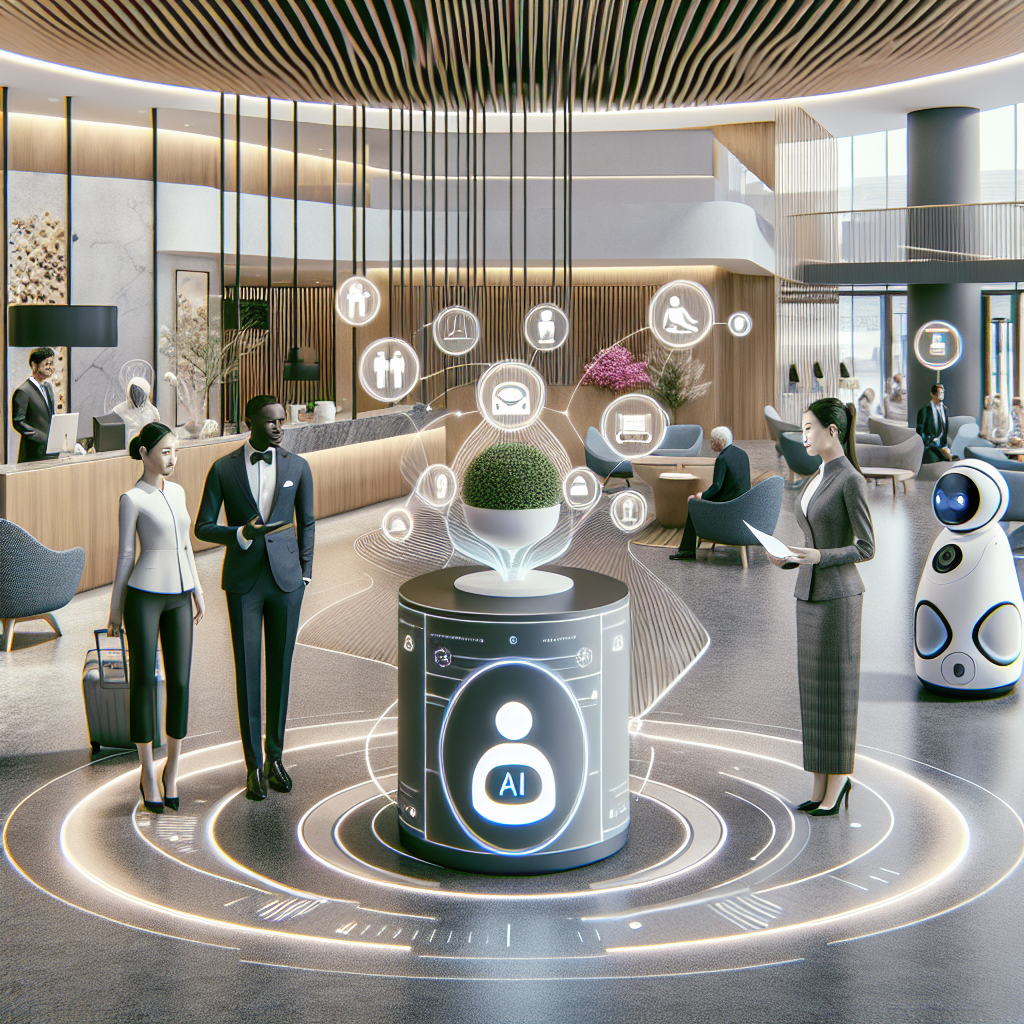The Future of Hotel Design: Incorporating AI Technology
In recent years, the hospitality industry has seen an increase in the use of technology to enhance the guest experience. From mobile check-in to keyless entry, hotels are constantly looking for ways to streamline processes and make their guests’ stay more convenient and enjoyable. One of the most exciting developments in this space is the integration of artificial intelligence (AI) technology into hotel design.
AI technology has the potential to revolutionize the way hotels operate and interact with guests. By leveraging AI, hotels can personalize the guest experience, optimize operations, and improve overall efficiency. From chatbots to smart room controls, AI technology is already being implemented in hotels around the world, and the possibilities are endless.
Personalizing the Guest Experience
One of the key benefits of AI technology in hotel design is the ability to personalize the guest experience. AI-powered chatbots can interact with guests in real-time, providing recommendations for local attractions, assisting with room service orders, and answering any questions they may have. This level of personalization can help hotels build stronger relationships with their guests and create a more memorable stay.
In addition to chatbots, AI technology can also be used to personalize room settings based on guest preferences. Smart room controls can adjust lighting, temperature, and entertainment options to suit individual guest preferences, creating a more comfortable and personalized experience. This level of customization can help hotels stand out in a competitive market and attract repeat business.
Optimizing Operations
AI technology can also help hotels optimize their operations and improve overall efficiency. By analyzing data on guest preferences, booking patterns, and staff performance, AI algorithms can help hotels make informed decisions to maximize revenue and minimize costs. For example, AI-powered revenue management systems can dynamically adjust room rates based on demand, helping hotels maximize profitability.
AI technology can also be used to improve staff productivity and streamline operations. For example, AI-powered housekeeping robots can autonomously clean and sanitize rooms, reducing the workload on housekeeping staff and ensuring rooms are ready for guests in a timely manner. This level of automation can help hotels reduce labor costs and improve overall efficiency.
Enhancing the Guest Experience
In addition to personalizing the guest experience and optimizing operations, AI technology can also enhance the overall guest experience. For example, AI-powered concierge services can provide guests with recommendations for local restaurants, attractions, and events, helping them make the most of their stay. AI technology can also be used to create immersive experiences, such as virtual reality tours of the hotel or interactive in-room entertainment options.
The Future of Hotel Design
The future of hotel design is bright with the integration of AI technology. By leveraging AI, hotels can create a more personalized, efficient, and enjoyable experience for their guests. From chatbots to smart room controls, AI technology is already transforming the way hotels operate and interact with guests. As technology continues to advance, the possibilities for AI in hotel design are endless.
FAQs
Q: How will AI technology impact the role of hotel staff?
A: AI technology has the potential to automate many routine tasks currently performed by hotel staff, such as check-in, room service orders, and housekeeping. While this may reduce the need for some staff positions, it can also free up staff to focus on tasks that require a human touch, such as guest relations and personalized service.
Q: Will AI technology replace the need for human interaction in hotels?
A: While AI technology can enhance the guest experience and streamline operations, human interaction will always play a vital role in the hospitality industry. Guests value the personal touch and expertise of hotel staff, and AI technology should be used to complement, rather than replace, human interaction.
Q: How can hotels ensure the security and privacy of guest data when using AI technology?
A: Hotels must prioritize the security and privacy of guest data when implementing AI technology. This includes implementing robust data encryption protocols, limiting access to sensitive information, and obtaining consent from guests before collecting and using their data. Hotels should also regularly audit their systems to ensure compliance with data protection regulations.
Q: What are some potential challenges of integrating AI technology into hotel design?
A: Some potential challenges of integrating AI technology into hotel design include the initial cost of implementation, staff training and adoption, and potential technical glitches or malfunctions. Hotels must carefully plan and execute their AI initiatives to ensure a smooth transition and maximize the benefits of the technology.
In conclusion, the future of hotel design is bright with the integration of AI technology. By leveraging AI, hotels can personalize the guest experience, optimize operations, and improve overall efficiency. From chatbots to smart room controls, AI technology is already transforming the way hotels operate and interact with guests. As technology continues to advance, the possibilities for AI in hotel design are endless, and hotels that embrace this technology will have a competitive edge in the industry.

